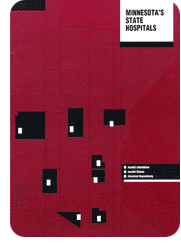With attention now focused on planning, financing, and monitoring the independent living system, a number of concerned groups, including the Court Monitor's office and the developmental disabilities council, produced position papers outlining their needs, missions and visions for the future.

The Developmental Disabilities Council published a series of policy papers about the issues raised in the Welsch case.
The first waiver request was submitted in 1983 whereby states could request Medicaid funding to move individuals from state institutions to local group homes or to prevent movement into institutions.
Reaction was swift and sure. Six bills to repeal the waiver were introduced within weeks of the Legislative session that opened in January 1984. Legislators feared residents would leave state hospitals so quickly that closures would happen without adequate planning.
Rep. Dick Welch summed up citizens' concerns, saying there was no plan in place and that they didn't want another "Rochester closure in the middle of the night."

According to critics, Perpich's support of using Medicaid to move individuals from state institutions lacked adequate planning.
Before closing any additional state hospitals, the Legislature called for a study of resident needs, energy use, buildings, costs, economic impact, employee preferences and options.
Over 5,000 people attended nine town meetings, facilitated by Miriam Karlins, in all local communities where state hospitals were located.
Tom Triplett and Gus Donhowe chaired a group of agency commissioners to develop a set of options.

The state hospital study encompassed all facets of possible closures.






